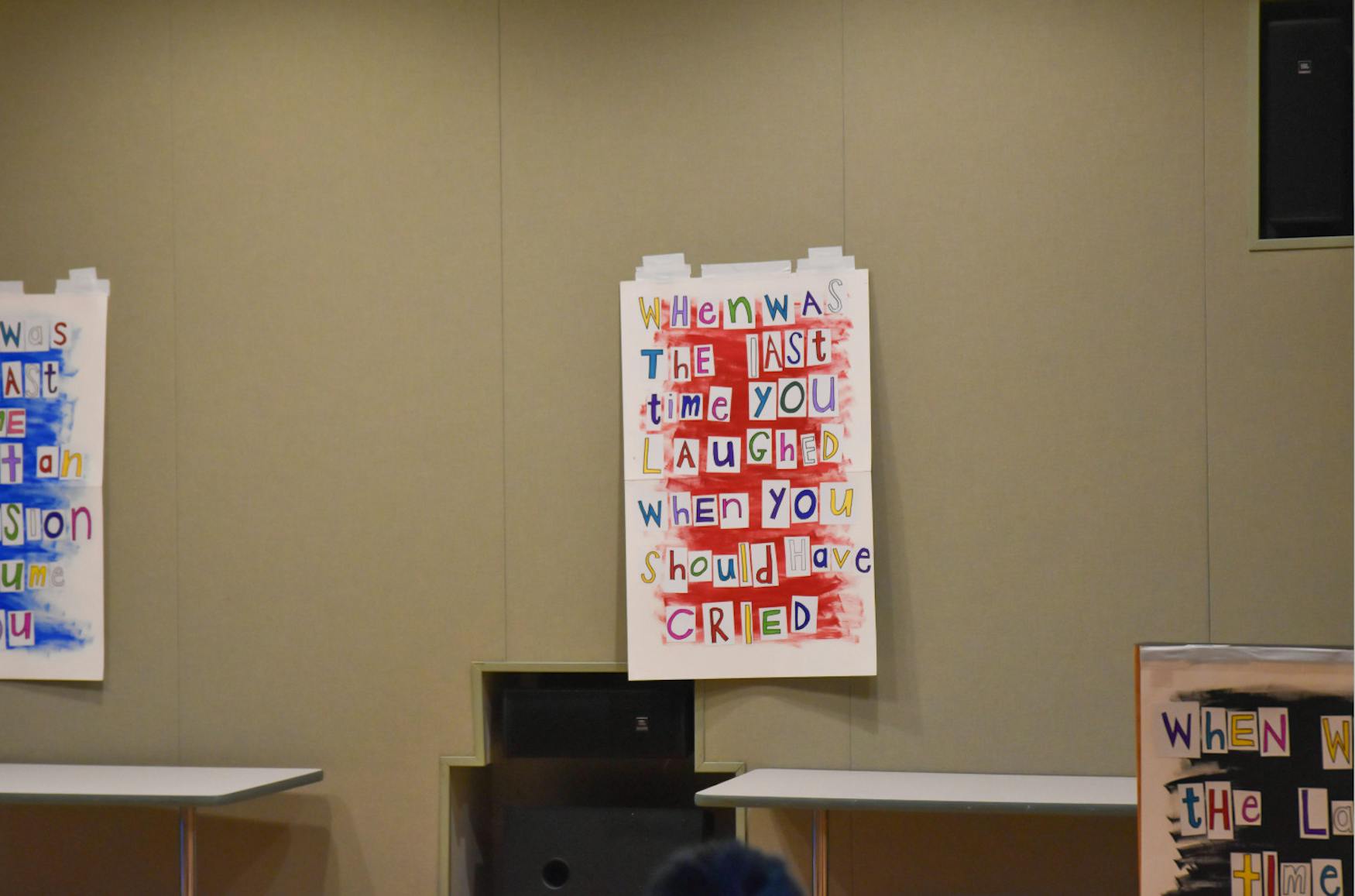Spilling the tea on 'Zoe Rose Spills her Guts.'
Comedy has an incredible power to help us navigate some of the most complex and emotionally taxing experiences. A moment of genuine laughter can lift spirits, foster unexpected connections and create space for people to escape and face the challenges of life. In her one-woman performance, put on in conjunction with the Leonard Bernstein Festival of the Arts, Brandeis alum Zoë Rose ’20 used her humor for the very purpose of inspiring audiences to look inward.
During her time at Brandeis, Rose’s knack for comedy and creativity was evident in her involvement in To Be Announced, a Brandeis student improvisation group, as well as her perusal of a minor in Creativity, the Arts and Social Transformation. In fact, her one-woman show, “Zoe Rose Spills her Guts,” originated as her senior project for the CAST minor. Given this background, it is no surprise that Rose’s show struck a balance between social consciousness and art.
In her one-woman show, Rose switched between four different incredibly human and humorous characters. First, she impersonated a socially competent and respectful frat boy. Her portrayal of this character was goofy and fun-loving, especially as she handed out free beers to audience members who were over the age of 21. However, she also highlighted the consciousness of the frat boy, as he had genuine respect for women’s boundaries.
Her second character was a British girl head over heels for a fictional character named Greg who she “has wanted to peg” for the longest time. Rose brought a ton of energy to this role, from her choice to begin tap dancing for the audience to waving a sign that simultaneously called for audience applause and stated “FUCK GREG.” For Rose, the eccentricity and chaotic nature of this character connect to a deep frustration with navigating love and life in one’s 20s.
Rose’s show then took a slightly darker turn when she switched to playing a troubled clown struggling with drug abuse. Unlike her previous character who begged for audience attention and engagement, Rose simply ignored the crowds, crafting a concoction of alcohol, pills, cigarettes and glitter. In this moment, Rose uses the absurd to ease the audience into conversations about sensitive and complex topics. After previously drawing the audience in with fun-loving chaotic characters, Rose uses the earned attention to begin tackling more meaningful topics.
Rose’s fourth and final performance was not of any character, rather it was an authentic, vulnerable representation of herself. She turned her own diary into her script, sharing entries from ages 14 to 21. Rose opens up about her troubled sex life and struggles with food, struggles not uncommon to individuals in this age group, but rarely openly discussed. In closing out this rollercoaster of a show with such a raw exposure of herself, Rose not only encourages audiences to be more self-reflective, but demonstrates the profound power of comedy to dismantle our strongest metal blocks.
In her conclusion of the show, Rose asked that the audience attempt to do the same internal work comedy helped her do. Posted on the walls of the performance space were diary prompts such as “When was the last time you laughed when you should have cried?” and “When was the last time you overindulged to the point of self-destruction.” Although these prompts are simply for private reflection, Rose asks a lot from her audience through these hard-hitting questions. In using comedy, Rose attempts to break down the emotional and mental walls we build and encourages viewers to dig through the rubble and understand their inner truths.



Please note All comments are eligible for publication in The Justice.